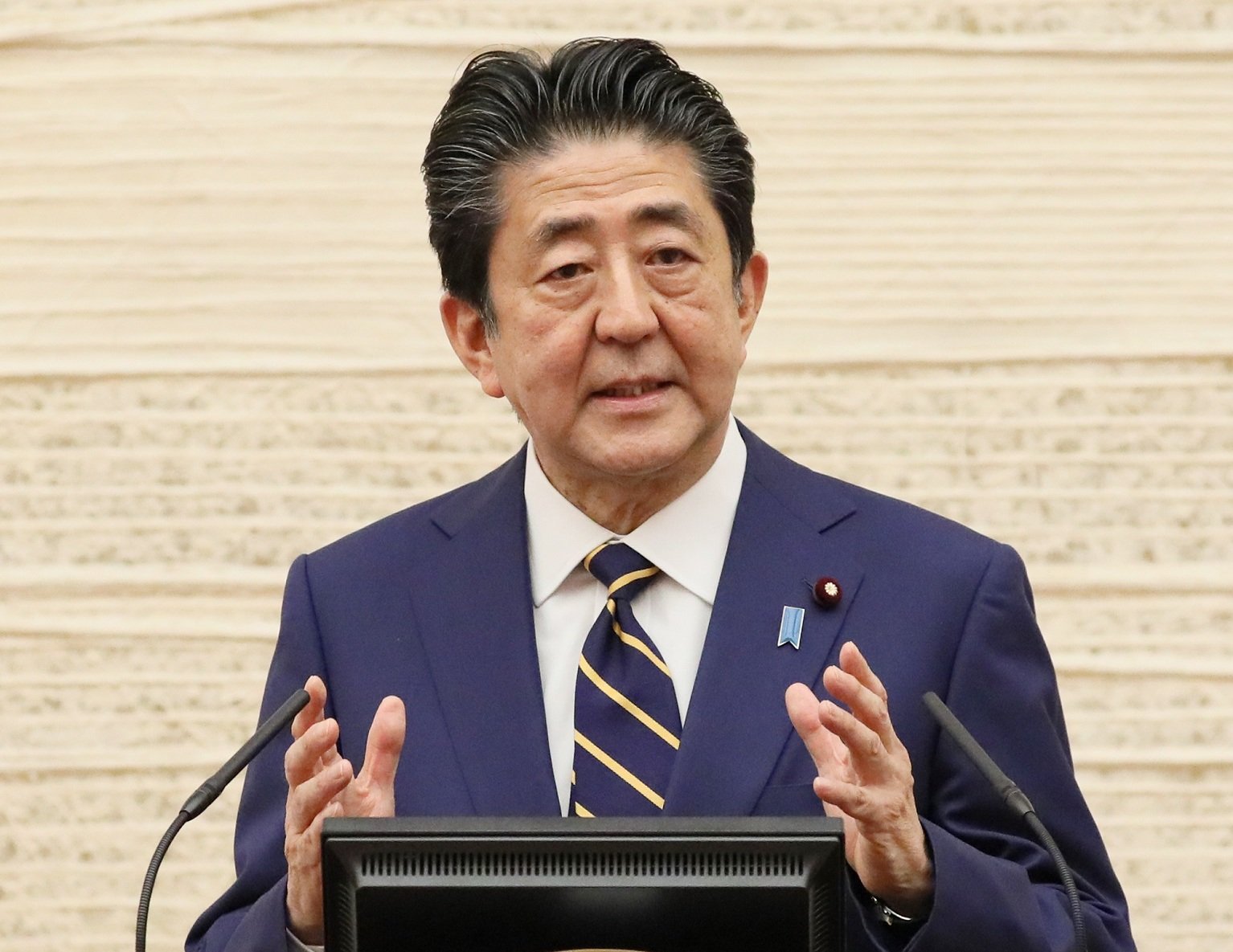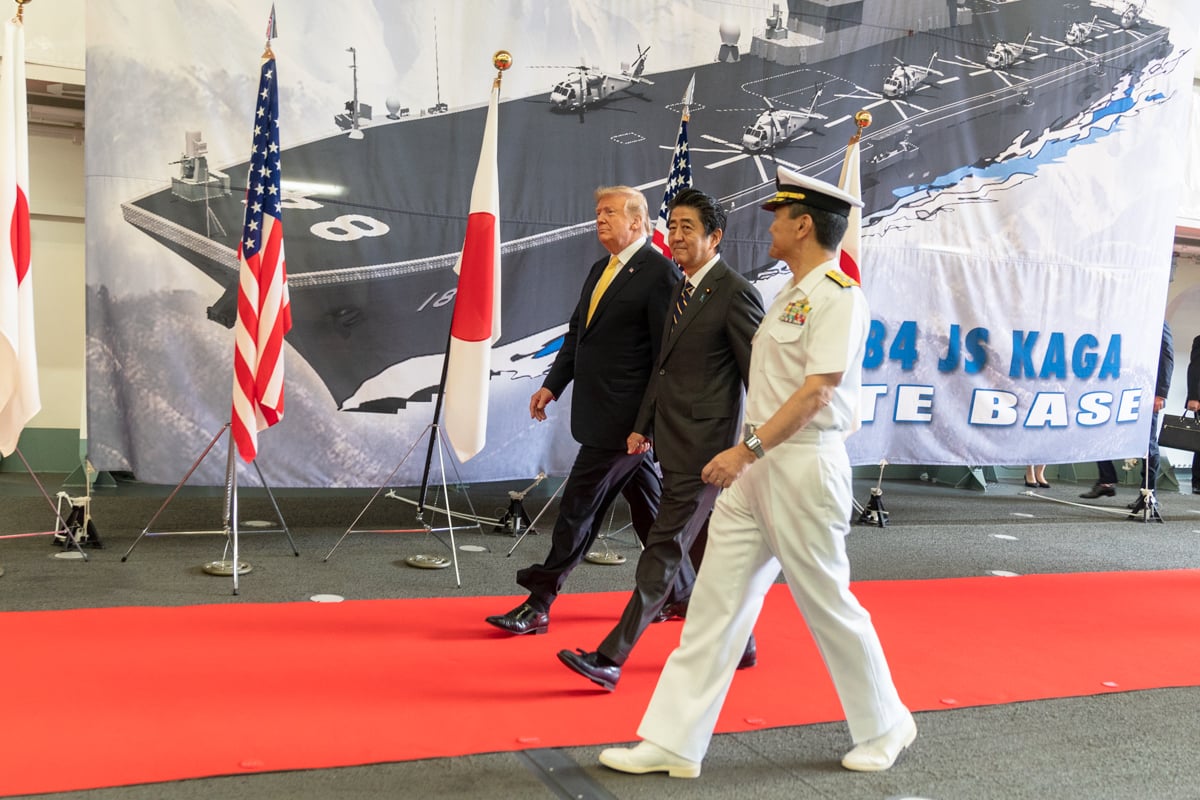
Japan’s next prime minister is expected to follow Shinzo Abe’s path in tightening Tokyo’s military ties with the United States and expanding the nation’s definition of “self-defense” to counter China’s and North Korea’s threats, four Indo-Pacific security experts said Tuesday.
Michael Green, Japan chair at the Center for Strategic and International Studies, said in an online forum “all [of the likely candidates to succeed Abe] are articulating the same policies. Continuity is likely.”
But the danger, the panel agreed, is that Tokyo could again be entering years of political turmoil, with a constant turnover in the prime minister’s office, as has been the case in Tokyo’s post-war democracy.
Abe has been the longest-serving Japanese prime minister since World War II, serving continuously in the role since 2012.
As prime minister, Abe “took Japan away from focusing almost exclusively on defense” of the home islands, Nicholas Szechenyi, a CSIS senior fellow said. He saw the advantages of interoperability with American air, land and maritime forces and the value of interdependence with other like-minded nations for collective security, like India and Australia.
Abe undertook “a very rare thing” for a Japanese prime minister when he pushed America and other allies and partners to “sign on to a free and open Indo-Pacific,” providing a mechanism to challenge China’s territorial claims, Green said.
The panel agreed that Abe made this shift to “collective defense” without attempting to change Article 9 of Japan’s constitution, which puts limits on its Self-Defense Forces operations.
“All of [Abe’s reforms] were about tightening the alliance with the United States,” Green added. That included keeping “Donald Trump focused on the alliance and the G-7,” the seven-nation group with the most advanced economies.
After eight years as prime minister, Abe surprisingly announced last week that, due to personal health issues, he was resigning his governmental post and as leader of the Liberal Democratic Party. Party leaders are to meet Sept. 14 to choose his successor for the party post and then elect him prime minister to fill out Abe’s term, Yuko Nakano, associate director of the center’s U.S. -Japan Strategic Leadership Program, said.
The panel said Abe’s likely successor is Yoshihide Saga, the chief cabinet secretary and government policy spokesman. “He is the only one with recent experience in economic security” matters that have worsened with the onslaught of the pandemic driving Japan into recession. Saga also has experience in maintaining Japan’s delicate economic balance with China in trade.
No matter who is selected, Abe’s term ends in a year, opening the door to a constantly changing party and governmental leadership, Nakano said. “We may have a new snap election” shortly after the successor is chosen.
Looking at challenges for the new prime minister, Victor Cha, CSIS’ Korea chair, said Tokyo’s relations with Seoul “are pretty much at rock bottom now,” with legacies of Japan’s long colonial rule and World War II atrocities committed on the peninsula.
Where Abe was actively engaged in “the Quad,” the informal security arrangement among Japan, Australia, India and the United States, his government saw a steady deterioration in its military cooperation with South Korea.

“It’s the piece that’s missing,” Cha added. “What we don’t want to see is where South Korea skipped the Trilateral in Guam last week.” The Trilateral is the joint sharing of security intelligence among the United States, Japan and South Korea, but over the past several years, cooperation has been troubled by trade disputes.
Cha said, “North Korea is not going to sit idly by” militarily as Tokyo and Seoul remain at odds.
On the broad economic front in the Indo-Pacific, Abe “deserves a lot of credit for getting [his alternative to the Trans Pacific Partnership] across the finish line,” Matthew Goodman, CSIS Simon chair in political economy, said. After the Trump administration’s announcement it was pulling out of the partnership, Abe worked with other nations across the region to “produce an alternative to Belt and Road,” China’s overseas development program.
Abe was convinced “Japan could use its economic power as its card in international affairs,” dealing with Washington, “keeping the United States engaged” and “managing China.”
Green said Abe should be ranked “as one of, if not the most consequential prime minister” in Japan’s post-war history. “He intended to compete” economically and diplomatically and maintain Indo-Pacific security.





